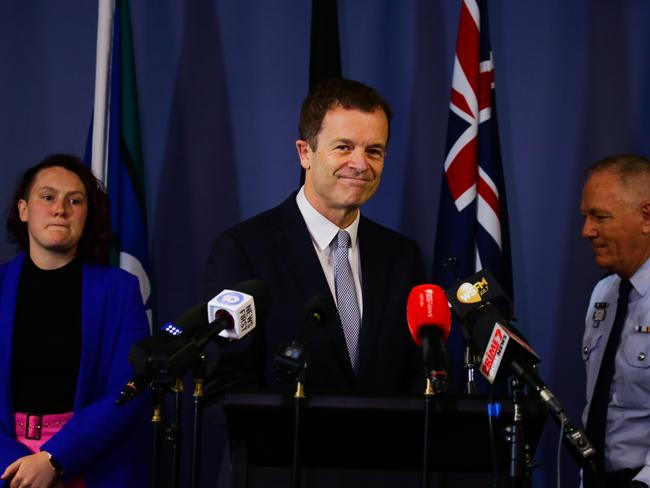Sex reform laws annouced by Mark Speakman criticised by some experts
The state government will “in principle” accept the findings of a report which recommends changes to the way the law is surrounding sexual consent.
NSW
Don't miss out on the headlines from NSW. Followed categories will be added to My News.
Anyone who lies to convince another person to have sex with them could be criminally liable under a major overhaul of NSW’s consent laws.
Attorney-General Mark Speakman said the state government will “in principle” adopt all 44 recommendations handed down by the Law Reform Commission for sexual assault cases — including the recommendation that if you lie to procure consent, it is invalid.

Lawyers say the change could land people who lie about being single or married in hot water as it would constitute fraud.
“Any consent that is obtained by trickery or fraud is not consent. Consent is voluntary,” leading criminal lawyer Sam Macedone said.
“If you say I’m not married, I’m single and the other person considers that to be true and say they would never have given consent (if they knew), then that in fact could (be prosecuted). It comes down to the interpretation that a person gives to that statement.”

The government is expected to ensure that care is taken in the drafting process to avoid any unintended overreach or consequences of the recommendations.
The sweeping reforms include the adoption of an affirmative consent model where consent cannot be given unless a party says or does something to give it.
Mr Macedone said the changes will create an increase in conversation prior to sex but in many instances, it could still be a case of “he said, she said.”

“I don’t think it really changes anything except one thing. Now you have to have a discussion between the two parties concerned to discuss consent,” he said.
“By virtue of the fact that it increases conversation around consent that helps.”
The requirement for an alleged perpetrator to take reasonable steps to ascertain consent will not change the onus of proof as the prosecution would still have to prove that the person did not take reasonable steps to attain the consent.
NSW Bar Association president Michael McHugh said the ‘ill-considered” reform would lead to “significant injustice”.
“The Attorney-General’s proposals appear to provide that consent to one type of sexual
activity is not on its own consent to another sexual activity … For example, if a person is consensually having sexual intercourse with another, they will have to obtain affirmative consent prior to placing a hand on the breast or buttock of the other person,” he said.

“This too has significant ramifications in criminalising conduct within, in particular,
established respectful relationships.”
The new laws will also allow judges to direct juries to not fall for dangerous “rape myths” including that sexual assault is always violent, or that a victim has to dress or act in a particular way.
Women’s Safety NSW chief executive Hayley Foster said the changes were a positive step but more needed to be done.
“There have been no moves to specialise courts hearing sexual assault matters nor to expand and extend sexual consent education,” she said.




